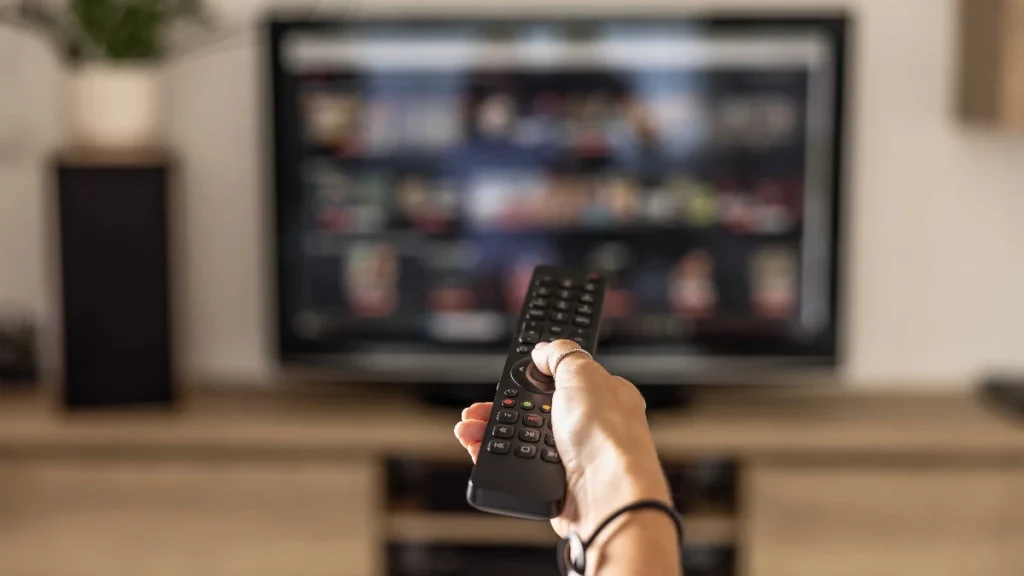What Is IPTV and How Is It Different?
IPTV stands for Internet Protocol Television, a system that delivers television content over internet networks instead of satellite or cable signals. Think of it as watching TV the same way you stream a YouTube video or browse a website—on demand and over the internet.
Unlike traditional TV, which broadcasts through pre-scheduled channels, IPTV gives users more control over what they watch, when they watch, and how they watch.
Types of IPTV Services
There are three main types of IPTV content delivery:
- Live IPTV: Broadcasts channels in real time. Ideal for sports, news, and live shows.
- VOD (Video on Demand): Lets users select and stream content from a library of titles at any time.
- Catch-Up TV: Offers the ability to watch past programs that aired within the previous hours or days.
Why IPTV Has Become the Go-To TV Format in 2025
Here’s why millions are ditching cable and switching to IPTV:
- More content choices: Access to international TV and niche channels.
- Lower cost: No need for physical infrastructure like cables or satellite dishes.
- Device flexibility: Watch from a Smart TV, phone, tablet, or laptop.
- No long-term contracts: Monthly, flexible plans are the norm.
Whether you live in a city apartment or a rural village, IPTV gives you access to global content as long as you have an internet connection.
Key Features of a Reliable IPTV Experience
When considering IPTV, look for services or systems that offer:
1. Stable Live Channel Streaming
Thousands of TV channels from different countries, available with minimal buffering and delay.
2. VOD Collections
Movie and series libraries categorized by genre, language, or year.
3. Electronic Program Guide (EPG)
A digital schedule that shows what’s currently airing and what’s next.
4. Multi-Device Access
Stream from multiple devices either simultaneously or individually.
5. User Interface Simplicity
Easy navigation, clear menus, and fast channel switching enhance usability.
What Do You Need to Use IPTV?
To get started with IPTV, you need:
- Stable internet (at least 10 Mbps for HD, 25 Mbps for 4K)
- Streaming device (Smart TV, smartphone, Android box, tablet, or computer)
- IPTV-compatible app (used to input your IPTV playlist or credentials)
Many IPTV systems are plug-and-play. You don’t need tech skills—just a reliable connection and a compatible app.
Safety Tips When Using IPTV
While IPTV is legal as a technology, not all providers are licensed to distribute content. Use caution:
- Avoid services that don’t mention legal access or customer support.
- Do not share your IPTV details online or on forums.
- Use a VPN to maintain your privacy and bypass regional restrictions.
A VPN also helps prevent your internet provider from limiting your streaming speeds.
IPTV vs. Traditional TV: A Quick Comparison
| Feature | IPTV | Traditional TV |
| Content Access | On-demand and live | Fixed schedule only |
| Device Support | Phones, TVs, PCs | TV-only (cable/sat) |
| Installation | No hardware needed | Requires dish/cable |
| Cost | Low monthly rates | High contracts & fees |
| Personalization | Custom channels & VOD | Pre-set bundles |
FAQs About IPTV
1. Is IPTV legal?
Yes, IPTV as a technology is legal. However, the legality of a service depends on whether it has rights to broadcast the content it offers. Always check the source and avoid unverified or suspicious services.
2. What devices can I use IPTV on?
You can use IPTV on:
- Smart TVs
- Android TV boxes
- Firesticks
- Tablets and smartphones
- Laptops and desktop computers
Almost any internet-enabled device with a screen can stream IPTV.
3. Do I need a VPN to use IPTV?
It’s highly recommended, especially if you:
- Value your online privacy
- Experience internet throttling during streaming
- Want to access content from other regions
A VPN encrypts your connection and unlocks content that may be blocked in your area.
4. Why is IPTV buffering sometimes?
Buffering can happen due to:
- Slow or unstable internet
- Overloaded IPTV servers
- Poor-quality IPTV apps
Switch to a wired internet connection, lower the stream quality, or change servers to fix the issue.
5. Can IPTV replace all traditional TV services?
Yes—for most people. IPTV offers live TV, movies, series, and even sports and news. The only exception might be niche local channels or networks with exclusive broadcast rights.
6. Can I use IPTV while traveling?
Absolutely. IPTV works globally as long as you have a good internet connection. For region-locked content, use a VPN to appear as if you’re in the original country.
Conclusion: Is IPTV Right for You in 2025?
If you’re looking for a cost-effective, flexible, and modern way to enjoy television, IPTV is worth exploring. It combines the best of live TV and on-demand viewing, without locking you into outdated contracts or expensive hardware.
Just remember—choose a legal source, optimize your internet setup, and enjoy the freedom to watch what you want, when you want, and where you want.








